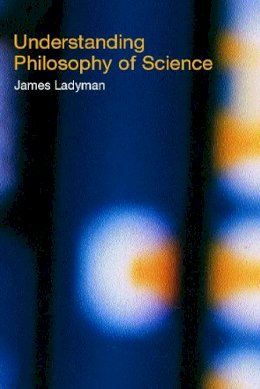
Stock image for illustration purposes only - book cover, edition or condition may vary.
Understanding Philosophy of Science
James Ladyman
€ 74.79
FREE Delivery in Ireland
Description for Understanding Philosophy of Science
Paperback. A comprehensive introduction to the philosophy of science. Introduces the key topics, such as the scientific method, rationalism and empiricism, as well as more advanced topics such as realism and antirealism. Num Pages: 304 pages, further reading, bibliography, glossary. BIC Classification: PDA. Category: (P) Professional & Vocational; (UP) Postgraduate, Research & Scholarly; (UU) Undergraduate. Dimension: 234 x 158 x 21. Weight in Grams: 464.
Few can imagine a world without telephones or televisions; many depend on computers and the Internet as part of daily life. Without scientific theory, these developments would not have been possible. In this exceptionally clear and engaging introduction to philosophy of science, James Ladyman explores the philosophical questions that arise when we reflect on the nature of the scientific method and the knowledge it produces. He discusses whether fundamental philosophical questions about knowledge and reality might be answered by science, and considers in detail the debate between realists and antirealists about the extent of scientific knowledge. Along the way, ... Read more
Few can imagine a world without telephones or televisions; many depend on computers and the Internet as part of daily life. Without scientific theory, these developments would not have been possible. In this exceptionally clear and engaging introduction to philosophy of science, James Ladyman explores the philosophical questions that arise when we reflect on the nature of the scientific method and the knowledge it produces. He discusses whether fundamental philosophical questions about knowledge and reality might be answered by science, and considers in detail the debate between realists and antirealists about the extent of scientific knowledge. Along the way, ... Read more
Product Details
Publisher
Taylor & Francis Ltd United Kingdom
Number of pages
304
Format
Paperback
Publication date
2001
Condition
New
Number of Pages
304
Place of Publication
London, United Kingdom
ISBN
9780415221573
SKU
V9780415221573
Shipping Time
Usually ships in 4 to 8 working days
Ref
99-1
About James Ladyman
James Ladyman is Senior Lecturer in philosophy at the University of Bristol
Reviews for Understanding Philosophy of Science
'An excellent introduction to philosophy of science that can be recommended as a starting point to the general reader... The writing is exceptionally clear and the text is enlivened by periodic snippets of dialogue between enthusiastic science lover Alice and her more sceptical friend Thomas.' - Network, 2002 'I have no reservations in recomnmending [it] as the ideal introductory ... Read more
